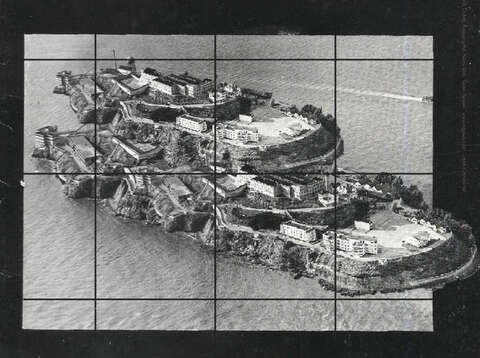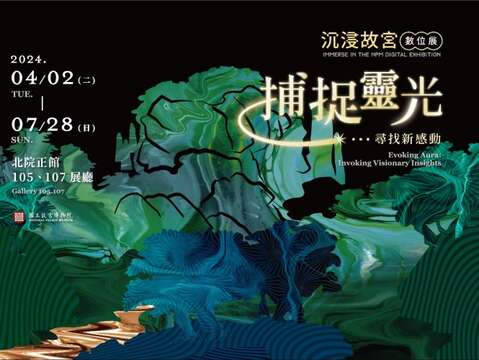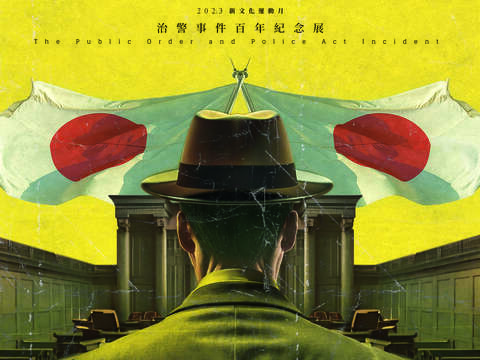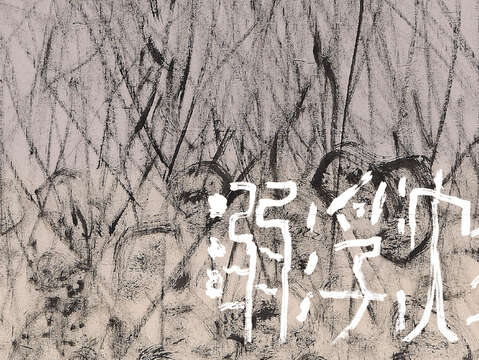Post date:2024-06-12
Updates:2024-06-12
83
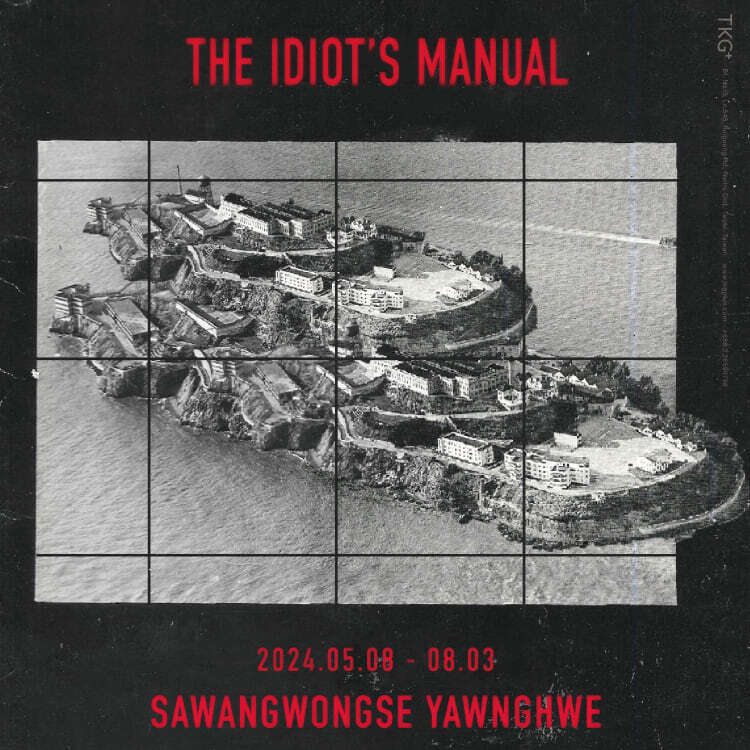
- Event Time
- 2024-05-08~2024-08-03Tue. - Sat. 11:00 -19:00
- Event Location
- B1, No. 15, Ln. 548, Ruiguang Rd, Neihu Dist., Taipei City Taiwan, R.O.C
The Idiot’s Manual is Sawangwongse Yawnghwe’s third solo exhibition in Taiwan after a four-year hiatus. Unlike his previous exhibitions, Yawnghwe Office in Exile / State Museum / Absoluter Gegenstoss / Absolute Recoil (2019) and Burmese History X (2020) — the former being a fictional museum exploring the narratives of the exiled Shan people of Myanmar, and the latter embodying a dialectic that interrogates historiography through the chronicles of the exiled Yawnghwe family and Myanmar, The Idiot’s Manual encapsulates the artist’s pivot from addressing the political relationship between the state and family toward a broader, more complex global perspective. This solo exhibition is centered on the four major dilemmas that confront humanity: global warming, the pandemic, social tensions, and the total digital control of human thinking.
The artist considers these four predicaments as the apocalypse. Originally derived from the Bible, the term “apocalypse” encompasses notions of end-time catastrophes or divine revelations, used by ancient Jewish and Christian prophets to describe visions of the end of the world: signs from heaven, a world awash in natural disasters and human calamities, as if nearing its end. But isn’t our world dangerously close to such impending cataclysms? Constant climate anomalies, rampant pandemic viruses unhindered by borders, escalating international tensions, and various forms of warfare breaking out across the globe — everything inextricably linked to the global market economy. Not to mention the capital market dominated by big data algorithms — despite our ongoing criticism and self-reflection — it has outgrown the confines of the market, ensnaring our thoughts and consciousness.
In the artist’s new work Post-Apocalypse Parallax (2024), he draws on philosopher Slavoj Žižek’s notion of ideological fantasy. Žižek suggests that reality presents itself as an illusion, in an attempt to mask the grotesque abyss behind the truth. That, too, is how the capitalist world operates; we must not take reality at face value, but delve into the illusion to find the underlying ideologies without being blindsided. “We must think now. We must act now.” The artist paints a massive canvas in his unique cartographic style, navigating between his thoughts and physical labor, shedding light on this age of revelations.
In addition to the artist’s distinctive cartographic paintings, this solo exhibition comprises a series of abstract works that combine intuitive brushwork with text, specifically phrases excerpted from his late father’s notebooks. As a descendant of the exiled Shan royalty, the artist’s life remains deeply entwined with his family’s tumultuous past. Some phrases are inscribed in the color strips that dominate the top and bottom of each work, while others are written across the paintings. In some works, text is completely absent.
The juxtaposition of text and imagery hints at the inherent discrepancy between text and image/landscape, much like an ideological gap that emerges between facts as we see them and facts as they are described. It is through constant reflexive and dialectical thinking that we can forge a new path in seeing, an endeavor toward omniscience, yet acutely aware of our limitations.
Camille Claudel (2023) references the protagonist from the ancient Greek tragedy Antigone. Fearless in her determination to bury her brother against the authorities, Antigone defies the city’s order, and faces insurmountable odds for what she believes is right. Another piece, The Crucifix (2023), reimagines Giotto’s Crucifixion, revealing the moment when truth comes to light. Steeped in religious symbolism and iconography, these two works serve as spiritual signifiers through their reinterpretation of classical motifs.
The Idiot’s Manual not only manifests as Sawangwongse Yawnghwe’s profound reflection on global crises, but underscores an urgent call for dialectical contemplation on humanity’s existence. In a world where capitalism reigns, the artist grapples with the constant need for self-reproduction, while sounding a clarion call to action. It is imperative, in the age of information explosion and unending calamities, that we navigate with caution the labyrinth of collective ideology, and identify fallacies that lurk within, guided by our thoughts and ideas.
The artist considers these four predicaments as the apocalypse. Originally derived from the Bible, the term “apocalypse” encompasses notions of end-time catastrophes or divine revelations, used by ancient Jewish and Christian prophets to describe visions of the end of the world: signs from heaven, a world awash in natural disasters and human calamities, as if nearing its end. But isn’t our world dangerously close to such impending cataclysms? Constant climate anomalies, rampant pandemic viruses unhindered by borders, escalating international tensions, and various forms of warfare breaking out across the globe — everything inextricably linked to the global market economy. Not to mention the capital market dominated by big data algorithms — despite our ongoing criticism and self-reflection — it has outgrown the confines of the market, ensnaring our thoughts and consciousness.
In the artist’s new work Post-Apocalypse Parallax (2024), he draws on philosopher Slavoj Žižek’s notion of ideological fantasy. Žižek suggests that reality presents itself as an illusion, in an attempt to mask the grotesque abyss behind the truth. That, too, is how the capitalist world operates; we must not take reality at face value, but delve into the illusion to find the underlying ideologies without being blindsided. “We must think now. We must act now.” The artist paints a massive canvas in his unique cartographic style, navigating between his thoughts and physical labor, shedding light on this age of revelations.
In addition to the artist’s distinctive cartographic paintings, this solo exhibition comprises a series of abstract works that combine intuitive brushwork with text, specifically phrases excerpted from his late father’s notebooks. As a descendant of the exiled Shan royalty, the artist’s life remains deeply entwined with his family’s tumultuous past. Some phrases are inscribed in the color strips that dominate the top and bottom of each work, while others are written across the paintings. In some works, text is completely absent.
The juxtaposition of text and imagery hints at the inherent discrepancy between text and image/landscape, much like an ideological gap that emerges between facts as we see them and facts as they are described. It is through constant reflexive and dialectical thinking that we can forge a new path in seeing, an endeavor toward omniscience, yet acutely aware of our limitations.
Camille Claudel (2023) references the protagonist from the ancient Greek tragedy Antigone. Fearless in her determination to bury her brother against the authorities, Antigone defies the city’s order, and faces insurmountable odds for what she believes is right. Another piece, The Crucifix (2023), reimagines Giotto’s Crucifixion, revealing the moment when truth comes to light. Steeped in religious symbolism and iconography, these two works serve as spiritual signifiers through their reinterpretation of classical motifs.
The Idiot’s Manual not only manifests as Sawangwongse Yawnghwe’s profound reflection on global crises, but underscores an urgent call for dialectical contemplation on humanity’s existence. In a world where capitalism reigns, the artist grapples with the constant need for self-reproduction, while sounding a clarion call to action. It is imperative, in the age of information explosion and unending calamities, that we navigate with caution the labyrinth of collective ideology, and identify fallacies that lurk within, guided by our thoughts and ideas.
 THE IDIOT’S MANUAL
THE IDIOT’S MANUAL